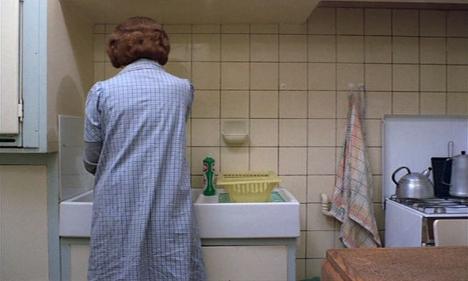Art Cinema's (Im)material Labours
Monday 23 February 2015, 4.30PM
Speaker(s): John David Rhodes (Cambridge)

"This paper addresses the category of the ‘art cinema’ as a mode of immaterial and/or affective labor. I foreground the question of art cinema’s laboriousness: its frequent focus on forms of work and its often slow-moving narration and obtuse signification and the labors that these formal features expect (or demand) from the art film’s spectator. I first contextualize these concerns in the long history of aesthetic theory’s appeal to the artwork as either a form of or a release from work. Next, I look at the opening of Red Desert (Michelangelo Antonioni, 1963) and its depiction of the encounter between striking industrial laborers (embodiments of “productive” labor in the process of withdrawing its labor) and a bourgeois housewife (embodiment of domestic labor that has somehow lost its way). I put this film’s exemplary art cinematic slowness and opaqueness of meaning in conversation with David Bordwell’s theorisation/description of the art film’s spectators who must constantly check their responses to the film and examine their own subjective responses so as to be sure they have guessed the film’s meaning correctly. I argue that this spectatorial work is a form of what Maurizio Lazzarato (and others) have come to call “immaterial labor”: “a labor of control, of handling information…, a decision-making capacity that involves the investment of subjectivity.”
Bordwell’s art cinema spectators seem as distinctively post-Fordist as Lazzarato’s immaterial laborers. I argue that the art film’s address and its theorization by Bordwell and others give us a evidence of a relation—both material and conceptual—between aesthetic stylization and labor itself. Last, I turn to Chantal Akermann’s Jeanne Dielman (1975) and its laborious long take representation of the labor of the housewife-sex worker in order to bring in the term ‘affective labor’, a term used by feminist theorists in the 1970s that endows the concept of immaterial labor with the dense materiality that always underwrites any form of so-called immaterial labor. Two housewives—one from 1963 and one from 1975—allow us to register the various dematerializations and rematerializations of the cinema, its spectator and labor itself. Art cinema’s stylized longueurs are, I argue, a means of embodying, accounting for, and, perhaps, critically contesting the mutation of labor in the latter half of the twentieth century."
Image: Still from Jeanne Dielman, 23 quai du Commerce, 1080 Bruxelles Chantal Akerman
Location: The Bowland Auditorium (Berrick Saul)
Admission: Everyone is welcome!
